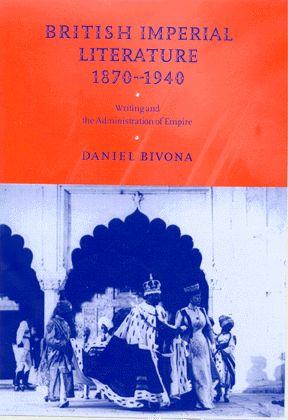

Beginning with a discussion of the bureaucratic imperialism of Lord Cromer, who promoted the imperial governing doctrine of Indirect Rule at the turn of the last century, Daniel Bivona's study traces the more gradual process by which the colonial bureaucratic subject, the figure whose work is rule, was constructed and celebrated in nineteenth- and early twentieth-century Britain. Through insightful readings of a number of influential writers who were involved in promoting the ideology of bureaucratic self-sacrifice, the most important of whom were Stanley, Kipling, and T. E. Lawrence, the book then examines how this governing ideology comes in for criticism in the novels of Joseph Conrad and the interwar novels of imperial manners of Joyce Cary and George Orwell. Carefully attentive both to the complexities of individual texts and to the larger historical context, this study makes the original claim that the colonial bureaucrat played an ambiguous but nonetheless central role in both pro-imperial and anti-imperial discourse, his own power relationship with bureaucratic superiors shaping the terms in which the proper relationship between colonizer and colonized was debated.
| Acknowledgments | |
| Introduction |
|
|
1 Agents and the problem of agency:
|
|
|
2 Why Africa needs Europe:
|
|
|
3 Kipling's "Law" and the division of
|
|
|
4 Cromer, Gordon, Conrad and the
|
|
|
5 T. E. Lawrence and the erotics
|
|
|
6 Resurrecting individualism: the interwar novel
|
|
| Conclusion: work as rule |
|
| Notes |
|
| Bibliography |
|
| Index |
|
Return to Dan Bivona's Home Page